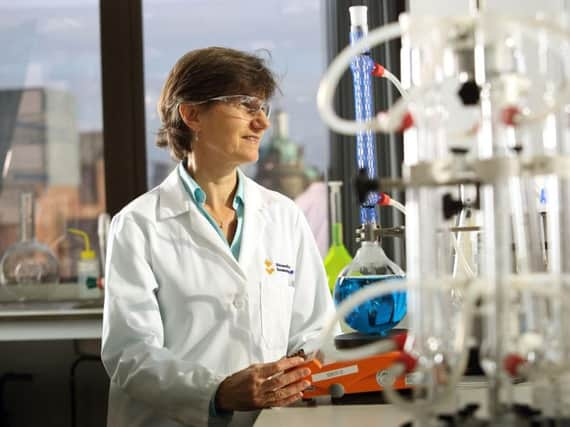£1.6m grant to help university continue legacy of 'inspirational' Sunderland scientist following her death


Professor Roz Anderson, who sadly lost her battle with cancer last summer, had worked tirelessly in the months previous to secure a grant from the Medical Research Council (MRC) which would take her research work - designing drugs that could treat and improve the quality of life for Cystinosis patients - to preclinical trials.
There is currently no cure for Cystinosis, which occurs when the body is unable to process cystine (an amino acid).


Advertisement
Hide AdAdvertisement
Hide AdNormally a person can excrete cystine, but for people with the condition, it attacks every organ in the body, particularly the kidneys, muscles and eyes.
Without treatment, patients can die from kidney failure before the age of 10.
The current treatment for the disease, cysteamine, produces unpleasant side effects, such as nausea, vomiting, halitosis, body odour and a noxious taste.
A large dose of the drug is required four times a day for patients, meaning that most patients need to take over 20 capsules every day.
Advertisement
Hide AdAdvertisement
Hide AdBut Prof Anderson and her team Sunderland University designed novel prodrugs to take the effective treatment directly to the cells that need it, improving its absorption, limiting metabolism and reducing the unpleasant side effects.
The MRC Developmental Pathway Funding Scheme is now funding a group of leading healthcare experts and collaborators over the next two years to complete the pre-clinical development stage and prepare for clinical trials.
Dr Adrian Moore, head of school, pharmacy and pharmaceutical sciences at the university, said: “The MRC grant is taking Roz and her team’s drug from the university laboratory synthesis stage to what may become the final manufacturing preparation.
"Roz worked so hard towards the end of her life to ensure this investment was secure and was highly delighted when the money was awarded.
Advertisement
Hide AdAdvertisement
Hide Ad"We understand it’s one of the highest graded grants that has been awarded through the MRC in the last two years.
"It’s also the legacy of 15 years of dedicated work by Roz that is offering so much hope to Cystinosis patients and their families.”
World leading cancer researcher Professor Herbie Newell, who has a background in bringing drugs from discovery to market, will lead the project.
He said: “It is a great privilege to take over as the Principal Investigator on the MRC-funded project to develop a new treatment for patients with the incurable genetic disease Cystinosis.
Advertisement
Hide AdAdvertisement
Hide Ad“Professor Roz Anderson was an outstanding medicinal chemist who I knew for a number of years and admired as a colleague.
"Her ground-breaking work offers real hope for Cystinosis patients, and I look forward to working with colleagues at the University of Sunderland and in pharma to bring this new medicine to patients.”
As part of the pre-clinical development phase, the production of the drug will be scaled up and regulatory safety studies will be performed.
Retired consultant and specialist in kidney disease, Stephen Waldek, will also help steer the project through the various stages of development.
Advertisement
Hide AdAdvertisement
Hide AdIn her 31-year career as a researcher at Sunderland University, Prof Anderson worked on the treatment of Alzheimer's disease, diagnosis of bacterial infections, psoriasis and cancer, but her particular passion was the battle against the rare genetic disorder Cystinosis.
Typically, her work was not confined purely to the lab, and she made a point of meeting and discussing her work with the children affected by this illness and their families, which she maintained was an essential aspect of her work.